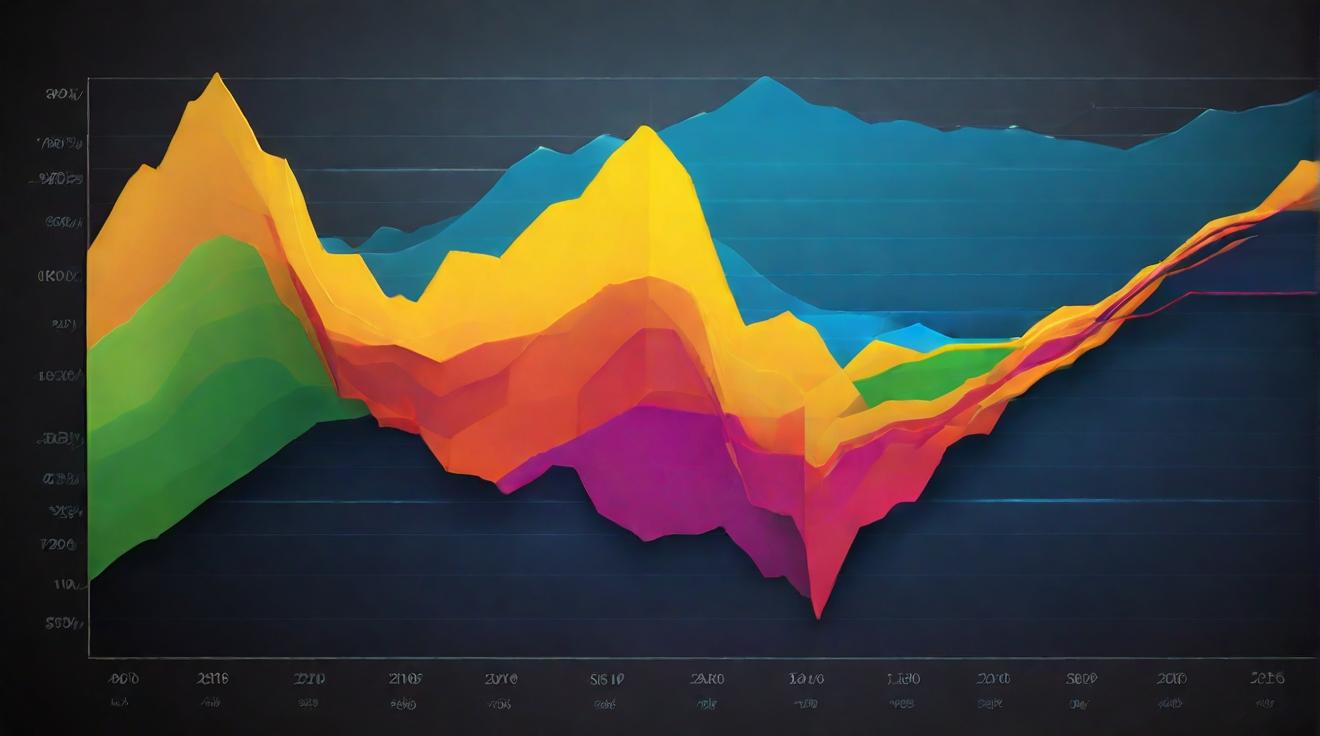Yields on 10-year Treasury notes have surged above 4.3%, reaching a 15-year high. This rise in interest rates poses a threat to the recent stock market rally, as it creates increased competition for investors’ money. With stock valuations already high and interest rates continuing to climb, stock prices may face further declines. In addition to the impact on stock prices, the surge in Treasury yields also raises concerns about the long-term economic growth and the possibility of a recession.
Rising Treasury Yields Pose Threat to Stock Market Rally
The surge in 10-year Treasury yields to 15-year highs has put a damper on the stock market rally that had seen a 20% rise in the S&P 500 from January to July. The benchmark index has already fallen 5% in August. The increase in Treasury yields is driven by factors such as high core inflation and increased government spending, which lead to a higher supply of Treasury bonds in the market. This rise in yields poses a threat to the stock market rally because Treasurys become more attractive to investors as risk-free assets when yields rise above 4%.
Impact of Rising Treasury Yields on Stock Prices
Rising Treasury yields mean greater competition for investors’ money, as Treasurys become a more attractive option compared to riskier stocks. This competition puts downward pressure on stock prices. The equity risk premium, which measures the excess return investors can expect from the stock market compared to the 10-year Treasury note, is currently at its lowest level since 2004. Higher stock valuations also contribute to the downward pressure on stock prices. The S&P 500’s trailing 12-month price-to-earnings ratio is currently above its five- and 10-year averages.
Stock Valuations Point to Potential Decline
Stock valuations are on the higher side, with the S&P 500’s trailing 12-month price-to-earnings ratio above its historical averages. According to Comerica Wealth Management’s CIO, John Lynch, stock valuations are too high for the current level of Treasury yields. If valuations were to fall in line with the 3-4% range of Treasury yields, the S&P 500 would be more fairly valued at 4,150-4,200, implying a further decline in stock prices.
Recession Concerns as Treasury Yields Surge
The surge in Treasury yields raises concerns about the possibility of a recession. In the past, 80% of Federal Reserve rate-hiking cycles have led to a recession. Leading economic indicators, such as the inverted Treasury yield curve and the Conference Board’s Leading Economic Index in recession territory, also point to trouble ahead. If a recession does occur, it could lead to a more significant stock sell-off than just a reversion in valuations. The average decline in the S&P 500 during a recessionary period is 32%.
Long-term Impact of Rising Yields on Economic Growth and Stock Market
The impact of rising yields goes beyond short-term stock market concerns. The Federal Reserve is raising interest rates to cool off the economy and slow inflation. However, prolonged elevated rates can put economic growth at risk. The strength of the labor market and overall economic growth will determine the extent of the reversal in stock prices. While many strategists believe that any recession following the recent rally will be mild, there is still a risk of a more severe decline in stock prices if economic growth deteriorates.
The recent surge in Treasury yields poses a threat to the stock market rally, leading to a decline in stock prices. Rising yields create increased competition for investors’ money and put downward pressure on stock prices. The high valuations of stocks, combined with the increase in yields, further contribute to potential price declines. Additionally, concerns about the long-term impact of rising yields on economic growth and the possibility of a recession add to the uncertainty in the stock market. As investors navigate these challenges, the future of the stock market rally remains uncertain.
Analyst comment
Negative news: The recent surge in Treasury yields poses a threat to the stock market rally, leading to a decline in stock prices. Rising yields create increased competition for investors’ money and put downward pressure on stock prices. The high valuations of stocks, combined with the increase in yields, further contribute to potential price declines. Additionally, concerns about the long-term impact of rising yields on economic growth and the possibility of a recession add to the uncertainty in the stock market. As investors navigate these challenges, the future of the stock market rally remains uncertain.













